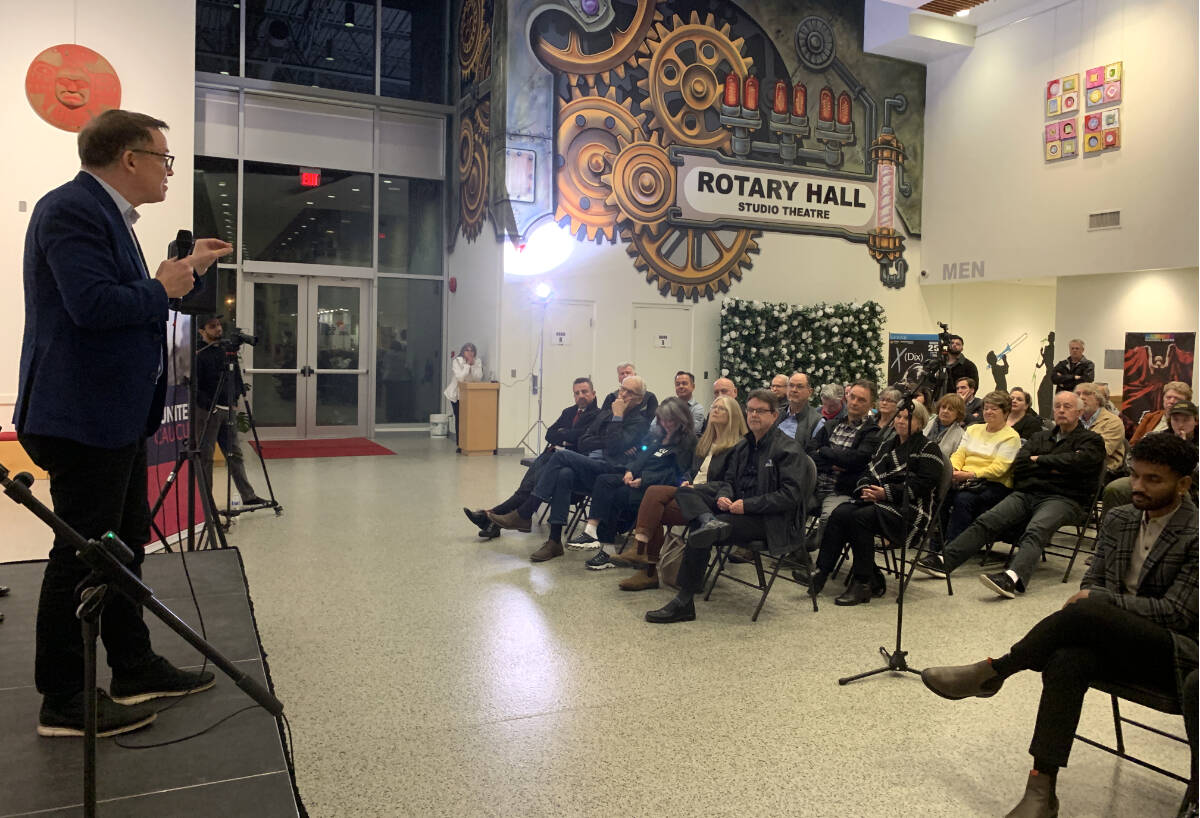A political analyst says the “stark contrast” between provincial Conservatives and the B.C. NDP leaves B.C. United in a “complicated, in-between space” in which they have carve their own identity.
B.C United under Leader Kevin Falcon is “being pulled to the right a little bit,” Simon Fraser University professor Nicolas Kenny said.
“The drug decriminalization debate, the tone of United has definitely shifted to the right on that issue and that is just one example,” he said. “But at the same time, if he goes too far to the right, he risks alienating the more centrist base of that party.”
Kenny made these comments after a Research Co poll that shows B.C. United in third place with 15 per cent among decided voters, down two per cent from a poll the same company conducted in January. Not only does the poll show the Conservatives are consolidating second place, it also shows B.C. United trending down.
“If you look at the United numbers, they are close to being within the margin of error in comparison with the B.C. Greens,” he said. B.C. Greens sit at 11 per cent.
The polls’ margin of error is plus, minus 3.5 per cent, 19 times out of 20.
The poll appeared during the same week that the B.C. NDP paused Bill 12 aimed at social media companies and other “faceless corporations” that are “hurting people.” New Democrats earlier this session also pressed pause on proposed changes to the Land Act governing about 95 per cent of provincial land.
In both cases, government faced criticism from outside and inside the legislature, with B.C. United framing each as evidence of its effectiveness as the official opposition.
“B.C. United puts pressure on the government about the Land Act,” B.C. United’s Peter Milobar, MLA for Kamloops North-Thompson, said Tuesday in the legislature. “Poof! It magically disappears.
“B.C. United is putting pressure on Bill 12. Just yesterday, the Attorney General (Niki Sharma) and Premier (David Eby) were adamant that Bill 12, was going to keep moving forward. Today, poof! It magically disappears. Well, B.C. United has been putting pressure on this government to end decriminalization today. If they won’t end it today, will they at least be consistent and end it tomorrow?”
RELATED: Conservatives becoming perfect ‘foil’ for B.C. NDP election hopes: SFU prof
RELATED: B.C. pauses bill aimed at social media companies that are ‘hurting people’
RELATED: B.C. presses pause on Indigenous-related changes to the Land Act
Kenny is not sure whether the public is noticing B.C. United’s accomplishments.
“The role of the opposition is a thankless task,” he said. “They are going to be pushing for this and they might be affecting change and they might be forcing government to force down on certain things, (but) the question is do people notice?”
Kenny added it is generally hard for an opposition party to get attention.
“They don’t control the narrative in the same way,” he said. “They are not as visible and it requires people paying closer attention than what they probably are some six months before an election.”
It might also be a question of topics. According to the Research Co. poll, almost four out of 10 surveyed British Columbians (37 per cent) consider the related issues of housing, homelessness and poverty the most important issue, followed by health care (21 per cent) and the economy and jobs (18 per cent).
Five per cent of surveyed British Columbians consider crime and public safety the most important issue, a figure that may surprise some because recent emphasis on public safety issues within the context of drug decriminalization.
“That issue (public safety) seems to be declining as a top concern for people,” Kenny said.
Falcon, for his part, does not buy it.
“I think it’s an excellent example of why I don’t pay a lot of attention to the polls,” Falcon said. “I have heard first-hand about this issue virtually in every single town hall that I hold.”
He added British Columbians are “very, very concerned” about the “explosion of drugs, the criminal activity, the catch-and-release” of defenders.
“I hear variations of this all the time, which is why I always warn people to be really, really careful about polls, because polls can be remarkably inaccurate.”

